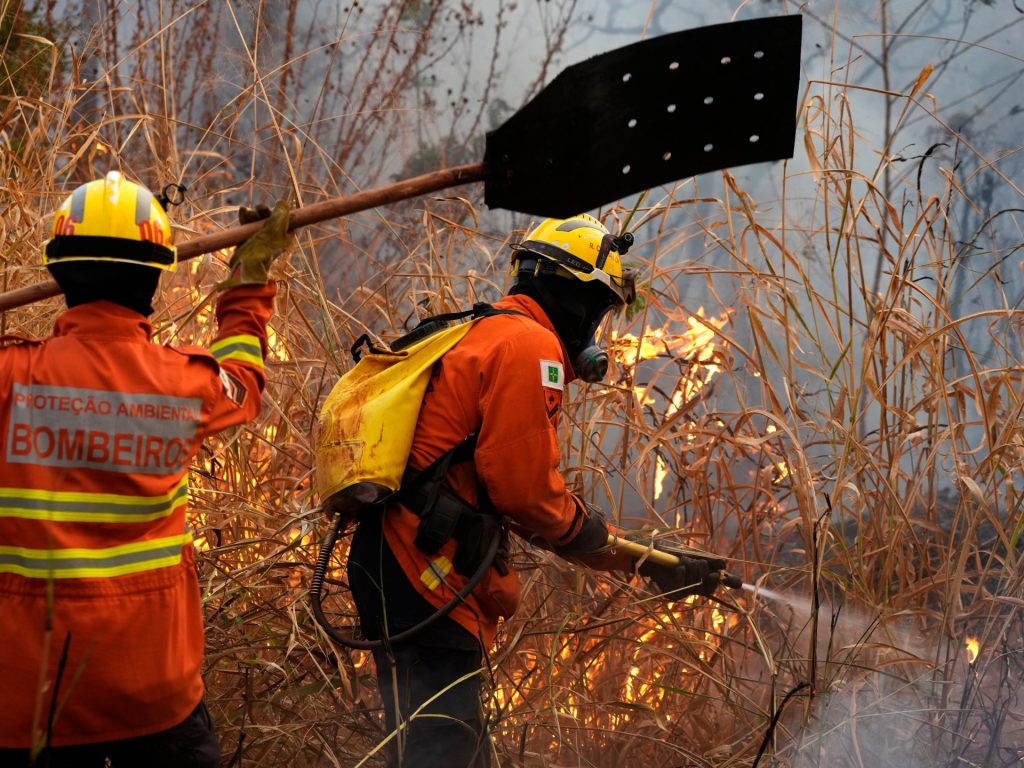Firefighters in Brazil are currently facing a challenging battle against wildfires that are spreading through the Brasilia National Park conservation area, burning through 2,000 hectares of land. The fires are causing significant smoke and air pollution in the capital city of Brasilia, with more than 490 firefighters working to extinguish the flames. The fires are just the latest in a series of wildfires that have been plaguing the country, which is currently experiencing a historic drought.
According to the government agency ICMBio, there are four main fire fronts in the eastern region of the park that firefighters are focusing on. Three aircraft and a helicopter are being used to drop water on the flames and monitor the burned areas. The fire management coordinator at ICMBio noted that the fire spread quickly due to high wind speeds, low humidity, and hot temperatures. The cause of the fire is believed to be human activity, prompting a federal police investigation into the matter.
The impact of the wildfires is visible in Brasilia, where columns of black smoke can be seen from various parts of the city. This is part of a larger trend of fires affecting protected areas in the Amazon rainforest, the Cerrado savanna, and the Pantanal wetlands, leading to a decline in air quality across the country. The severity of the situation prompted a Supreme Court justice to issue a ruling allowing the government to allocate additional funds for firefighting efforts and hiring more firefighters to combat the forest fires.
The wildfires in Brazil are exacerbated by the country’s worst drought in over 70 years, with 59 percent of the country affected by extreme dry conditions. Major rivers in the Amazon basin are recording historically low water levels, heightening concerns about the impact of climate change on extreme weather events like wildfires and floods. Scientists warn that climate change is likely to increase the frequency and severity of such events, creating challenges for firefighting efforts and ecosystem conservation in Brazil and other parts of the world.















